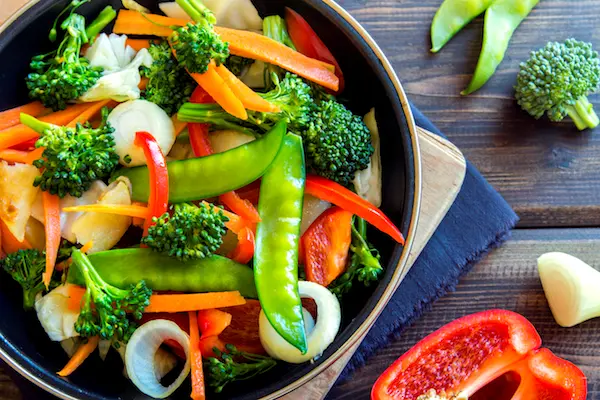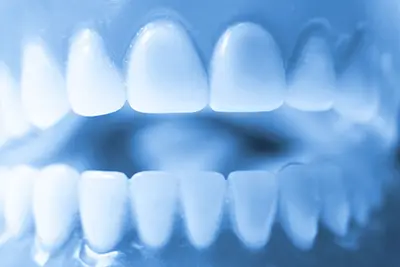Eating Vegetables Is as Beneficial to Muscles as Eating Meat

04/05/2017
By Karen Angelo
It’s long been known that protein is important for building healthy bones and muscles. But does the source of protein — whether vegetables or meat — matter?
New research results published in the highly ranked American Journal of Clinical Nutrition settle that question. The study, which was spearheaded by Asst. Prof. Kelsey Mangano of the Department of Biomedical and Nutritional Sciences, shows that protein from plant-based foods is as beneficial to muscle mass and strength in middle-aged and older adults as protein from meat.
Mangano says that until now, we didn’t know if one protein source was better than the other.
“This study is significant, as it suggests that higher protein intake from any protein-rich food source will build muscles in adults,” she says. Starting around age 40, people gradually begin losing muscle mass and strength. This can cause physical disabilities and increase risks of falls. Proper nutrition can make a difference, explains Mangano. “Whether you’re a vegetarian or a meat lover, the research results are good news for everyone,” she says. “As long as overall protein intake is adequate, foods such as eggs, meat, seafood, legumes, nuts, beans and vegetables will all contribute to better overall muscle mass and strength, which is even more important as we age.”

The study was funded by the NIH National Institute of Aging, the National Heart, Lung and Blood Institute’s Framingham Heart Study, the Framingham Osteoporosis Study and the Academy of Nutrition and Dietetics Healthy Aging Dietetics Practice Group Research Award.
Overall, about 82 percent of participants were meeting or exceeding the recommended daily amount of protein — approximately 46 grams per day for the average woman and 56 grams per day for the average man.
She advises people to choose protein sources within an overall healthy diet — for example, low saturated fat, low sodium, decreased added sugars and processed foods, and high fiber.
“An overall healthy diet will not only benefit muscle and bone health, but prevent chronic disease, such as heart disease and diabetes,” she says. “There are many protein food sources that naturally fall into healthy recommendations that will aid in the benefit of a high-protein diet.”




